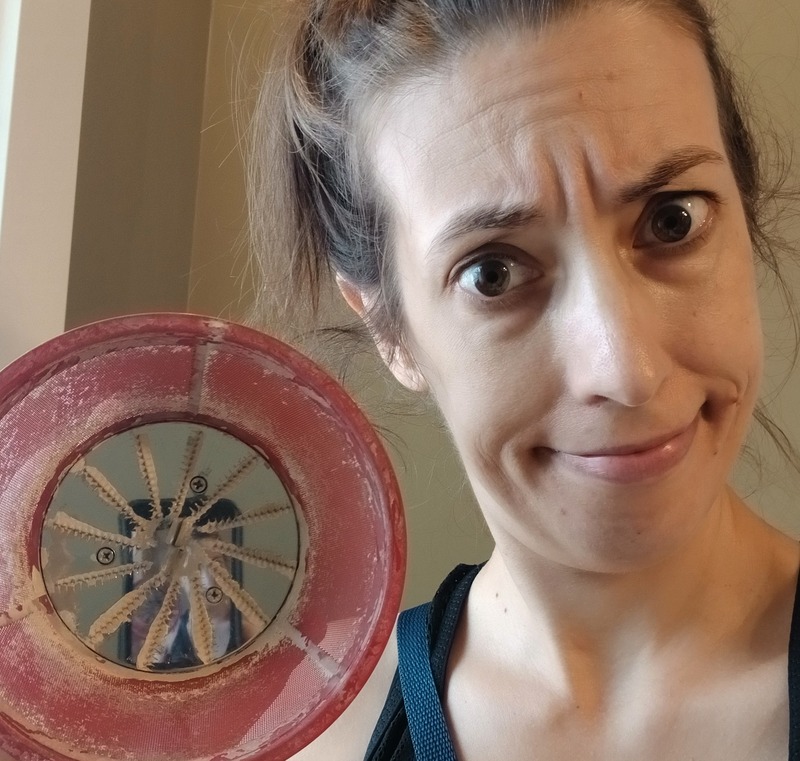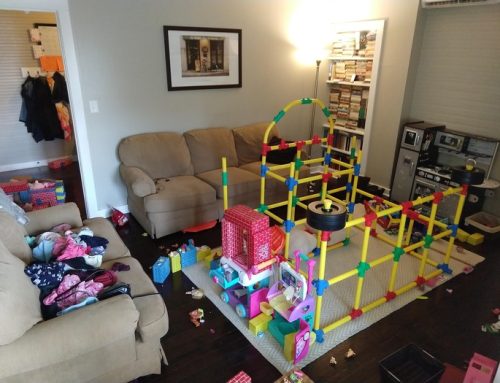Did you know that happiness research indicates that removing something negative in our lives has a greater overall impact on our well-being than including something positive?
In other words: If you can figure out how to address your overwhelm, quit overextending yourself, and get dreaded things off your plate, you will be happier than if someone handed you a new pair of shoes, or even a dream vacation.
I love this research finding, because it implies that in the equation of a happy life, subtraction is more important than addition. Or put another way, “Less negative beats more positive.”
Turns out, happiness isn’t just about doing more fun things, nice as that is. Rather, it’s about being willing to learn to relieve our own suffering, in whatever form it takes. In this post, my goal is to support you in resolving the pattern of chronically overextending yourself.
Meaning: constantly taking on too much, regularly bemoaning being too busy, despairing of ever taking things off of your overflowing plate. If this is you, I promise, you’re not alone. Let me give you an example from my own life.
Overextending yourself example
A decade ago, a close friend of mine got really into daily green juice. It was changing her life, she said, and she wanted me to try it. This friend was very persistent. So I borrowed a juicer to try out, then bought one of my own. I used it daily for a while, then less and less.
Then I had two kids in two years, and it will come as no surprise to you that I barely juiced at all. While I use our blender for daily green smoothies, I don’t use the juicer, nor do I plan to. It’s time to let it go. But first, I thought, this old thing needs a deep cleaning.
So this week, in between parenting, running a business, and preparing to lead a live event, I have been attempting to deep-clean said juicer. A juicer that … let’s be real … I didn’t even want in the first place!
I only got that juicer a decade ago because my friend was so insistent. And last week, I was spending precious downtime deep-cleaning the old thing, trying to do the “right” thing yet again. Talk about an overextending yourself example!
That is, until I did the process I’m going to teach you in a minute. After doing that, I realized: it’s high time to recycle the juicer. ?

This is what the juicer looked like *after* I tried to deep-clean it.
Why do people overextend themselves?
The whole juicer situation illumines the plight of the overextended, over-responsible one. We work very hard to be “good” at everything from friendship to health to decluttering.
Then we look around one day and think, “How did I get here, caught in the trap of self-sacrifice? How did I end up pinned under the weight of expectations I didn’t even really want in the first place? And how can I get out from under them?”
Dear reader, if that’s you, you are in the right place. It’s time to rethink things, isn’t it? Time to quit playing out someone else’s script for your life, and start writing one that rings true for you.
Here’s something you might not know: often when people come to me for coaching, they actually already know how to solve their problems. But there is a hidden barrier, a block, to implementing that change. That’s why they want support.
Why do people overextend themselves? They don’t know why – that is, until we find that hidden barrier quickly, by playing the 5 Why’s game.
I first learned this technique from Ramit Sethi in his excellent post on the psychology of passive barriers, but apparently the modern version was created by Sakichi Toyoda in the 1930s.
First, take the thing that’s locked up in your life. Then ask yourself, What would I advise a friend to do in this situation?
OK, now ask: Why am I not doing that?
And then ask “Why?” four more times.
Let me show you how this process works within the context of that juicer example I gave earlier.
What I didn’t tell you before is that that old juicer was part of a pattern. My old friend would tell me what to do, and I would do it. And if I didn’t, she would get upset. And if you think that sounds like an unhealthy dynamic, you are correct.
I was chronically overextending myself in that friendship. And a few years ago, it came to a breaking point. That decades-long friendship ended, despite my best efforts to save it.
So, back to my old juicer. It was worn down, and the deep-cleaning wasn’t working. What would tell a friend to do? I’d say: Give up; go ahead and recycle the parts responsibly. So, why am I not doing that?
- First why: Because I feel that I should be able to get this deep-cleaning to work.
- Second why: Because that’s what I do, I make things work, I don’t just give up.
- Third why: Because making things work is what a good person does … and, because that’s what I wish I would have been able to do with this friendship, make it work.
- Fourth why: Because I love my friend. And if I admit that I can’t fix the juicer, then I remember how I couldn’t fix the friendship, and then I feel sad.
- Fifth why: Because the friendship is over. And so is the juicer.
Do you see how it happened that I put “deep clean the juicer” on my to-do list despite knowing better?
The good news is, once I actually addressed that sadness and applied love to the part that hurt, it was easy to let go of the juicer. I got back hours of my time, just by figuring out what was really going on.
So, here’s what I challenge you to do. Find something that you’re doing to overextend yourself. Then, set a timer for 3 minutes. Ask yourself, what would I tell a friend to do? Then, ask yourself, why am I not doing that thing? Do the 5 whys process.
If any sadness, anger, fear, or grief arises, it’s OK. Apply love to any part that hurts. You may be thinking, “How do we apply love when we’re hurting?” I go into detail about how to reparent yourself right here, but in a nutshell, here’s the emergency version:
We give ourselves a hug. We act as a loving witness to our own suffering. We speak to ourselves kindly, saying things like: I hear you, and I see you. May you be well, may you be safe, may you be happy, may you be free from suffering.
Want a video version of me taking you through this process? Here’s an excerpt from our recent live class, Reunite with Your Purpose for Overextended Oldest Daughters.
Overextending yourself psychology
We tend to think that the overwhelm will recede once we finish one more thing. Once we wrap up that high-pressure project. Once we change jobs, or get our parents moved, or our kids situated. Once we retire. But that’s just the arrival fallacy in action.
Freedom comes when we realize: the overwhelm isn’t so much out there as in here. Not so much a circumstance as an (inadvertent) act of creation.
As one woman wrote to me recently:
“I think I am so accustomed to having my plate be overfull, that I am creating a new retirement plate that is similar. I am overwhelmed, need rest, and don’t have the time to absorb everything new that I am taking on.”
You would not believe how often I see this overextending yourself psychology. Kind, compassionate people spend decades in over-full lives. They have to numb out and shut down to sustain their busy schedules.
Since others are used to them over-functioning, they keep getting roped into doing more than their share, and the overwhelm escalates. Well-meaning people tell them to “do less” or “put on your own oxygen mask first.” Sounds great in theory, but it doesn’t feel realistic.
If this is you, you might be wondering: How do I start shifting this pattern and quit living in overwhelm? Well, I created a four-step process – The SURE Method – to help you recover from perfectionism and superwoman syndrome. For now, let’s focus on step 1: Subtract.
If you’re overwhelmed, we start by getting you some breathing room. We need to reduce the demands on you, so you can see more clearly. (Yes, this is something of a Catch-22: in order to do this, you are going to have to face your fear of saying no, or missing out.)
Since I know how tough this can be, let me give you another powerful process to help.
How do I stop overextending myself?
You start by counting the real-world cost of not saying no.
Right now, slow down, breathe, and connect with yourself. Ask: What do I truly yearn for? What’s really important to me?
With that in mind, identify one significant thing that you are doing out of obligation.
Then, do a true accounting of what the thing is costing you. Look at …
- The time you spend preparing to do this thing (including planning, phone calls, texts, or travel time)
- The time you spend complaining about or dreading this thing
- The time you spend earning income to pay for this thing
- The time you spend actually doing this thing
- The time you spend recovering from having done this thing (including venting to friends, or going to therapy)
- The opportunity cost: What are you not able to do, because you have decided to do this thing?
And the biggest one of all …
- The time you spend rebuilding trust with yourself, for doing something that wasn’t in alignment for you.
If you’re feeling sobered – even shocked – you’re not alone. Almost all of us significantly underestimate the amount of time, money, and energy we spend doing things that are not true Yeses.
As you know, I recently spent precious time deep-cleaning a juicer that I didn’t even want in the first place. Though I made the initial purchase a decade ago, that juicer just kept costing me.
When I did this exercise myself, I was shocked: All told, that decision to people-please my friend and buy the juicer probably cost me $1000+ over 10 years. (I could have flown to Scotland for that!)
While the juicer itself was about $80, I paid for years of organic greens to put in it, and gas for last-minute grocery runs. I stored it in valuable space, spent time cleaning it, and lost sleep getting up early for it.
All of this because my erstwhile friend told me I had to have a juicer, and I didn’t just say, “That’s great that you love juicing, but I’ll pass.” Ten years later, it felt so good to say goodbye to that albatross.
That’s what we forget, when we’re busy clinging to the tasks that we took on because we were trying to “be good” … It feels much better to be free.
To have open space in our cabinets and our calendars. To have open arms, ready to receive. To travel light, and go on new adventures. To let it be easy.

Easy trip to Scotland, summer 2025.
To quote Elaine St. James in her book Simplify Your Life:
“I’ve finally learned that if something is difficult, it’s better not to do it …. If it’s not working, it’s best to just move on, and to put my energies elsewhere.”
This passage has been running through my mind all week, particularly the chapter title: “If it’s not easy, don’t do it.” Really?! Turns out I agree, with one point of clarification: If it’s not fundamentally easy, it’s usually better not to do it.
How do I stop overextending myself? I practice letting go of that which isn’t fundamentally easy.
In my experience, if there is not a deep-down sense of ease and rightness to the relationship or project, I’m better off letting it alone. Yes, I get that this is a subversive message for my fellow recovering perfectionists and overextended ones. But stay with me for a minute, OK?
Of course, sometimes things that feel fundamentally easy require a lot of work. But even the work itself has a joyful quality to it. Take my long-awaited trip to Scotland this summer as an example.
On the surface, it might not seem “easy” to plan a week away with close friends, earn income to fund the trip, book tickets and lodging, etc. Not to mention taking 3 planes and traveling for about 18 hours door to door. But dear reader, it did feel easy, even joyful.
Since I was SO excited for the trip, I did not mind the effort! It felt aligned for me. Same goes for relationships. While my relationships with my spouse, closest friends, and kids have certainly weathered some storms, at a fundamental level it feels easy to be with these beloved people.
And career, well – if I had tried to go into a mathematically-based field, I’d be fighting an uphill battle, dealing with dyscalculia on the daily.
Instead, I chose a career that lets me play with words and stories and have deep, soulful conversations about personal development. Sure, it requires courage and effort, but it’s also fundamentally easy for me.
What about you, dear reader? As you look back over your own life, do you notice that the relationships, jobs, and projects that have gone well were those that were fundamentally easy? If so, consider: What would it feel like to live according to what felt fundamentally easy?
For a step by step process to start living that way, enter your email address below to receive the Sacred Circle Exercise.
Free Up Time to Pursue Your Purpose with the Sacred Circle exercise!
Share This:
Comments
Related Posts


